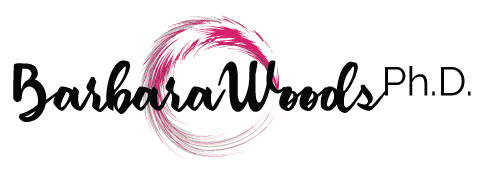barbarawoods, PHD
-intergenerational trauma program founder-
"Connected and courageous therapists see beyond behavior to the person beneath."
In the ever-evolving world of therapy, the journey towards becoming a master therapist is as intricate as it is rewarding. It's a path that demands more than just technical expertise; it calls for a deep understanding of human connection, a courage to navigate through the dark tunnels of fear and complexity, and an unwavering commitment to the healing process. This journey is especially profound when dealing with intergenerational trauma within complex family dynamics.
The Essence of Mastery in Therapy:
The term 'master therapist' often conjures images of authoritative figures wielding power or control. However, true mastery in therapy is far from this. It’s about developing a wide range of diverse skills, forging deep connections, and having the courage to venture into the dark places alongside our clients. Mastery is not about dominating over others; it’s about mastering the art and science of therapy itself.
Transforming Fear into Connection and Courage:
One of the most significant challenges therapists face is working with complicated family structures, where layers of intergenerational trauma and intricate dynamics come into play. Such scenarios can evoke a sense of fear or frustration in even the most experienced therapists. However, these feelings of fear can be transformed into opportunities for creating deep connections and demonstrating courage.
The Power of a Gentle Approach:
In the realm of intergenerational trauma, the metaphorical roar of a lion – an approach characterized by assertiveness and authority – can often do more harm than good. Families dealing with complex trauma need gentleness, understanding, and a sense of safety more than they need forceful intervention. It's about melding into the family system in a way that is non-threatening yet effective, thereby creating a safe space for healing to begin.
Personal Reflections:
My own journey in understanding this came early in my career while working in a substance abuse facility. An exercise involving residents writing descriptors on index cards led to a moment of profound realization for me. The word 'harmless,' initially perceived as a sign of weakness, was actually a testament to creating a safe space for those in need. This experience influenced my therapeutic approach, emphasizing the importance of being a safe, non-threatening presence in the therapy room.
The Path to Becoming a Connected and Courageous Therapist:
Becoming a connected and courageous therapist involves more than just acquiring knowledge; it’s about embracing a specialized framework that considers the intricate layers of intergenerational trauma. It means having the bravery to sit alongside clients as they navigate immense pain and the sensitivity to challenge generational patterns that have been painfully present. This approach not only fosters healing in clients but also promotes resilience and transformation across generations.
Conclusion:
The path to becoming a master therapist, especially in the context of intergenerational trauma, is complex and challenging. Yet, it's incredibly fulfilling. It requires an understanding that mastery is not about power over others but about empowerment – of oneself and of those we help. As therapists, our greatest tool is our ability to transform fear into connection and courage, leading our clients towards healing and resilience.
As we continue to explore these themes and share insights, I invite you to engage with this journey of transformation and mastery in therapy. Let us walk this path together, learning and growing with each step we take.
